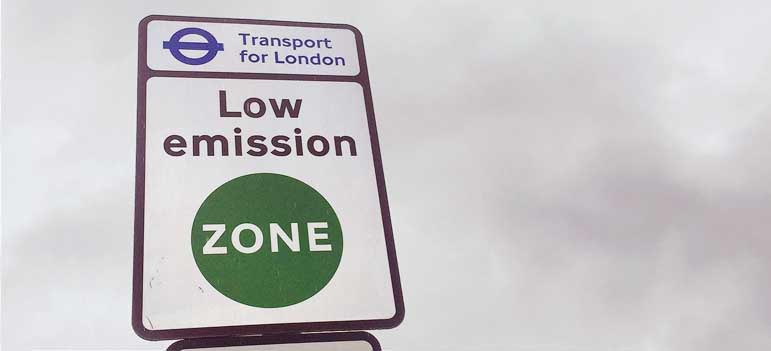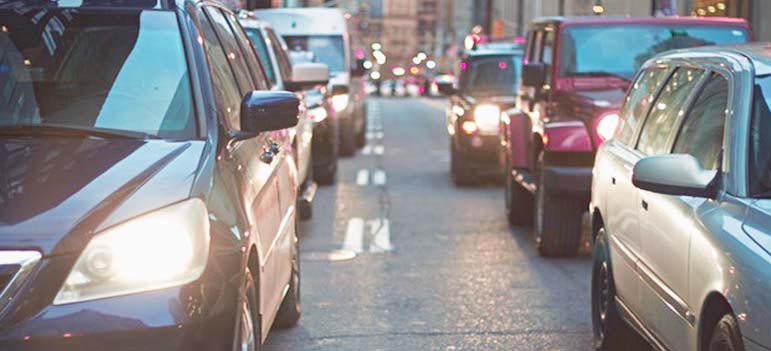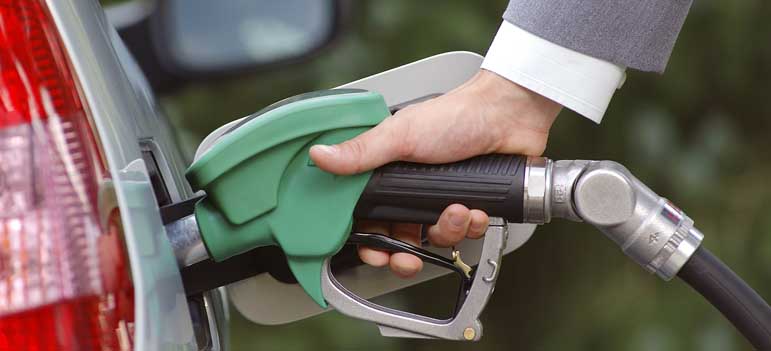Commercial motorists seem to be getting hit from left and right by tough government legislation and rising costs. We look at a series of measures that penalise commercial motorists.
Over 1.8 million owner operators are dependent on their vehicles for their livelihoods. In total 4.7 million CVs contribute £27.5 billion to the economy from freight alone as well as providing many essential local and national services.
We examine how these motorists, that play such a crucial role in driving the economy, are being left without offering enough support and investment to help them through challenging times.
Anti Diesel Agenda – Could diesels soon to be worthless ?
The UK is under pressure to hit international air quality targets. Reducing harmful vehicle emissions will play a large part in achieving this. Few people would disagree with the benefits of cleaner air but many leading trade organisations believe the Government is going about achieving their goals the wrong way.
96% of commercial vehicles are fueled by diesel, which provides the necessary efficiency and performance required to deliver heavy loads over long distances. On average, diesel vans use around 50% less fuel than petrol vehicles. The lower running costs results in lower costs for customers.
There is no getting away from the fact that London’s NO2 pollution levels are globally some of the worst. Many parts of the capital exceed the EU’s legal limits. Yet the latest Euro VI diesel trucks and vans have virtually eliminated particulates, and the latest HGVs show a 95% reduction in NOx compared to Euro V models. Further investment in these vehicles could play a huge role in improving air quality whilst maintaining the infrastructure of a strong logistics industry.
Mike Hawes, Society of Motor Manufacturers and traders (SMMT) Chief Executive, said:
“Commercial vehicles play an essential but often overlooked role in keeping Britain functioning, performing jobs and transporting vital goods and services that we all rely on every day. This sector has never been so important to the UK economy – and to British jobs – and diesel’s role in powering these vital vehicles should not be downplayed. Nearly all our commercial vehicles are driven by diesel, and thanks to heavy investment by industry to develop world-leading low emission technology, the latest Euro VI CVs on our roads today are the cleanest and safest ever.”
The SMMT has warned the Government against pursuing what is calls “an anti-diesel agenda.” Instead ownership of modern low emission diesels should be encouraged with long term incentives. Steve Gooding, director of the RAC Foundation, agrees and highlights the fear that in the next 5 years diesels will almost certainly be, “Worth significantly less than they otherwise might have been.”
Due to bans and additional costs imposed on certain diesel vehicles in city centres, the fear of higher road and fuel taxation and even the prospect of steeper parking charges diesel owners are certainly facing trying times. A generous scrappage scheme is being called for but currently no offer is on the table.

Mixed messages on zero-emission capable vehicles
At the same time as they shepherd drivers away from diesel the government isn’t exactly going out of its way to drive the take up of 0 emission capable vehicles. Only 100% electric vehicles are now except from road tax. Following the introduction on April 1st of new taxation rates, 0 emission capable vehicles will now have to pay at least £140 after their first year on the road.
Society of Motor Manufacturers and Traders’ figures show 36,917 plugin electric vehicles were registered in 2016 (approximately 1.4% of the 2.7 million vehicles in total.) This is the highest number in Europe, yet it could potentially be much higher with the development of a sufficient charging infrastructure. 42% of motorists in a recent survey said there were put off going electric as there aren’t enough charge points in their area.
There is a clear lack of investment in the UK’s charging infrastructure despite the Government’s stated desire for a greater electric vehicle take up. Nowhere is this more obvious than in London’s taxi and private hire trade. TfL will require all newly licensed taxi vehicles to be 0 emission capable from January 1st 2018 and all private hire vehicles to follow suit by the same date in 2020.
Yet there are currently only plans to deliver 300 rapid charge points to service a market of over 120,000 licensed drivers. With many drivers living in flats and unable to charge their vehicles at home this number is simple not practical.
Fines, Fines, Fines
The logic of councils imposing fines on motorists for parking and bus lane contraventions should be to prevent them causing unnecessary traffic delays. However after reading the results of a recent BBC investigation into bus lane fines imposed by 64 councils its difficult not to think they’re more of a revenue generation method.
In just over 8 months in 2016 one set of cameras on John Dobson Street in Newcastle-upon-Tyne caught nearly 63,000 drivers. The fines made the council £1.5 million or £5,960 a day. Cameras on bus lanes alone provided income of £31 million between 2015-16. When you consider the additional income from parking fines monitoring drivers looks a lucrative business for councils.

State of the roads
With all that money being raised from fines and higher road tax you’d expect the roads to at least be well maintained. Yet potholes affected 6.3 million drivers in the year between March 2015 and March 2016.
Councils claim they are unable to cope with the crisis. According to research by the AA repair bills totaling £684 million were paid by the UK’s motorists due to the “menace” potholes. The problem cost affected drivers an average of £108.60 to address: tyre, wheel, suspension, exhaust and bodywork damage.
A survey by the Asphalt Industry Alliance (AIA) revealed that the average annual shortfall in local authorities’ road maintenance budgets has risen by 50 per cent to £4.6 million compared with 2016. Transport spokesman for the Local Government Association, Cllr Peter Box, said: “It is becoming increasingly urgent to address the roads crisis we face as a nation.”
It appears we’re in a cycle of decline with wetter winters contributing to worsening road conditions and higher repair costs for councils due to sustained under investment. Somewhat ludicrously the cost of compensation paid to drivers is greater than the amount spent on repairing the roads.
Insurance Premium Tax (IPT) doubles in 18 months
As of June 1st 2017 IPT in the UK will reach 12%. The latest rise will mean that the rate will have doubled since October 2015 – when the first of three quick fire increases were imposed by the treasury. The increase equates to an additional £60 of tax being applied to motorists’ £1000 or insurance premium in the space of a year and a half.
As well as higher IPT costs drivers will be further impacted by the high court’s ruling in March to reduce the”Discount Rate.” This already having a dramatic effect on some insurer’s premiums. Further information on this issue can be found on our blog.

Fuel Duty
Although fuel duty has not risen in 6 years the fact remains that approximately 65% of what you pay at the pump goes to the government. So despite the lack of recent increases the current level means UK motorists pay, according to www.petrolprices.com, the 7th highest amount per litre in the world. At the time of the Spring Budget fuel costs before tax had jumped nearly by around 20% year on year, this may well have saved drivers from a further tax increase.
Congestion
As everyone knows time is money. Unfortunately traffic in many of the UK’s cities runs painfully slow. London was found to be the worst with an average speed of just 8.3 mph. Commercial drivers spent more than 12 working days sitting in stationary traffic last year. A debate is currently raging between motorists and cyclists across the country as to whether newly developed cycle super highways are contributing to the delays.
We’d love to hear your thoughts. Feel free to get in touch @planinsurance on Twitter if you’d like to suggest any other motoring measures that you think we’ve missed?
Related post: Fighting a Traffic Ticket in Florida.
Sources
https://www.theguardian.com/money/2017/mar/04/diesel-environment-ban-tax-duty-emissions-values
http://www.standard.co.uk/news/techandgadgets/half-of-drivers-put-off-electric-cars-by-lack-of-charging-points-a3474071.html
https://tfl.gov.uk/modes/driving/ultra-low-emission-zone/taxi-and-private-hire-requirements
http://www.thetimes.co.uk/article/84520d0a-ff61-11e6-a22f-c31ef65384a0
https://www.petrolprices.com/the-price-of-fuel.html
https://www.google.co.uk/amp/www.telegraph.co.uk/cars/news/britains-pothole-problem-costs-drivers-684m-in-a-year/amp/
http://www.standard.co.uk/news/london/london-traffic-means-buses-are-slower-than-a-horse-and-cart-a3370316.html
Commercial motorists seem to be getting hit from left and right by tough government legislation and rising costs. We look at a series of measures that penalise commercial motorists.
Over 1.8 million owner operators are dependent on their vehicles for their livelihoods. In total 4.7 million CVs contribute £27.5 billion to the economy from freight alone as well as providing many essential local and national services.
We examine how these motorists, that play such a crucial role in driving the economy, are being left without offering enough support and investment to help them through challenging times.
Anti Diesel Agenda – Could diesels soon to be worthless ?
The UK is under pressure to hit international air quality targets. Reducing harmful vehicle emissions will play a large part in achieving this. Few people would disagree with the benefits of cleaner air but many leading trade organisations believe the Government is going about achieving their goals the wrong way.
96% of commercial vehicles are fueled by diesel, which provides the necessary efficiency and performance required to deliver heavy loads over long distances. On average, diesel vans use around 50% less fuel than petrol vehicles. The lower running costs results in lower costs for customers.
There is no getting away from the fact that London’s NO2 pollution levels are globally some of the worst. Many parts of the capital exceed the EU’s legal limits. Yet the latest Euro VI diesel trucks and vans have virtually eliminated particulates, and the latest HGVs show a 95% reduction in NOx compared to Euro V models. Further investment in these vehicles could play a huge role in improving air quality whilst maintaining the infrastructure of a strong logistics industry.
Mike Hawes, Society of Motor Manufacturers and traders (SMMT) Chief Executive, said:
“Commercial vehicles play an essential but often overlooked role in keeping Britain functioning, performing jobs and transporting vital goods and services that we all rely on every day. This sector has never been so important to the UK economy – and to British jobs – and diesel’s role in powering these vital vehicles should not be downplayed. Nearly all our commercial vehicles are driven by diesel, and thanks to heavy investment by industry to develop world-leading low emission technology, the latest Euro VI CVs on our roads today are the cleanest and safest ever.”
The SMMT has warned the Government against pursuing what is calls “an anti-diesel agenda.” Instead ownership of modern low emission diesels should be encouraged with long term incentives. Steve Gooding, director of the RAC Foundation, agrees and highlights the fear that in the next 5 years diesels will almost certainly be, “Worth significantly less than they otherwise might have been.”
Due to bans and additional costs imposed on certain diesel vehicles in city centres, the fear of higher road and fuel taxation and even the prospect of steeper parking charges diesel owners are certainly facing trying times. A generous scrappage scheme is being called for but currently no offer is on the table.

Mixed messages on zero-emission capable vehicles
At the same time as they shepherd drivers away from diesel the government isn’t exactly going out of its way to drive the take up of 0 emission capable vehicles. Only 100% electric vehicles are now except from road tax. Following the introduction on April 1st of new taxation rates, 0 emission capable vehicles will now have to pay at least £140 after their first year on the road.
Society of Motor Manufacturers and Traders’ figures show 36,917 plugin electric vehicles were registered in 2016 (approximately 1.4% of the 2.7 million vehicles in total.) This is the highest number in Europe, yet it could potentially be much higher with the development of a sufficient charging infrastructure. 42% of motorists in a recent survey said there were put off going electric as there aren’t enough charge points in their area.
There is a clear lack of investment in the UK’s charging infrastructure despite the Government’s stated desire for a greater electric vehicle take up. Nowhere is this more obvious than in London’s taxi and private hire trade. TfL will require all newly licensed taxi vehicles to be 0 emission capable from January 1st 2018 and all private hire vehicles to follow suit by the same date in 2020.
Yet there are currently only plans to deliver 300 rapid charge points to service a market of over 120,000 licensed drivers. With many drivers living in flats and unable to charge their vehicles at home this number is simple not practical.
Fines, Fines, Fines
The logic of councils imposing fines on motorists for parking and bus lane contraventions should be to prevent them causing unnecessary traffic delays. However after reading the results of a recent BBC investigation into bus lane fines imposed by 64 councils its difficult not to think they’re more of a revenue generation method.
In just over 8 months in 2016 one set of cameras on John Dobson Street in Newcastle-upon-Tyne caught nearly 63,000 drivers. The fines made the council £1.5 million or £5,960 a day. Cameras on bus lanes alone provided income of £31 million between 2015-16. When you consider the additional income from parking fines monitoring drivers looks a lucrative business for councils.

State of the roads
With all that money being raised from fines and higher road tax you’d expect the roads to at least be well maintained. Yet potholes affected 6.3 million drivers in the year between March 2015 and March 2016.
Councils claim they are unable to cope with the crisis. According to research by the AA repair bills totaling £684 million were paid by the UK’s motorists due to the “menace” potholes. The problem cost affected drivers an average of £108.60 to address: tyre, wheel, suspension, exhaust and bodywork damage.
A survey by the Asphalt Industry Alliance (AIA) revealed that the average annual shortfall in local authorities’ road maintenance budgets has risen by 50 per cent to £4.6 million compared with 2016. Transport spokesman for the Local Government Association, Cllr Peter Box, said: “It is becoming increasingly urgent to address the roads crisis we face as a nation.”
It appears we’re in a cycle of decline with wetter winters contributing to worsening road conditions and higher repair costs for councils due to sustained under investment. Somewhat ludicrously the cost of compensation paid to drivers is greater than the amount spent on repairing the roads.
Insurance Premium Tax (IPT) doubles in 18 months
As of June 1st 2017 IPT in the UK will reach 12%. The latest rise will mean that the rate will have doubled since October 2015 – when the first of three quick fire increases were imposed by the treasury. The increase equates to an additional £60 of tax being applied to motorists’ £1000 or insurance premium in the space of a year and a half.
As well as higher IPT costs drivers will be further impacted by the high court’s ruling in March to reduce the”Discount Rate.” This already having a dramatic effect on some insurer’s premiums. Further information on this issue can be found on our blog.

Fuel Duty
Although fuel duty has not risen in 6 years the fact remains that approximately 65% of what you pay at the pump goes to the government. So despite the lack of recent increases the current level means UK motorists pay, according to www.petrolprices.com, the 7th highest amount per litre in the world. At the time of the Spring Budget fuel costs before tax had jumped nearly by around 20% year on year, this may well have saved drivers from a further tax increase.
Congestion
As everyone knows time is money. Unfortunately traffic in many of the UK’s cities runs painfully slow. London was found to be the worst with an average speed of just 8.3 mph. Commercial drivers spent more than 12 working days sitting in stationary traffic last year. A debate is currently raging between motorists and cyclists across the country as to whether newly developed cycle super highways are contributing to the delays.
We’d love to hear your thoughts. Feel free to get in touch @planinsurance on Twitter if you’d like to suggest any other motoring measures that you think we’ve missed?
Related post: Fighting a Traffic Ticket in Florida.
Sources
https://www.theguardian.com/money/2017/mar/04/diesel-environment-ban-tax-duty-emissions-values
https://tfl.gov.uk/modes/driving/ultra-low-emission-zone/taxi-and-private-hire-requirements
http://www.thetimes.co.uk/article/84520d0a-ff61-11e6-a22f-c31ef65384a0

